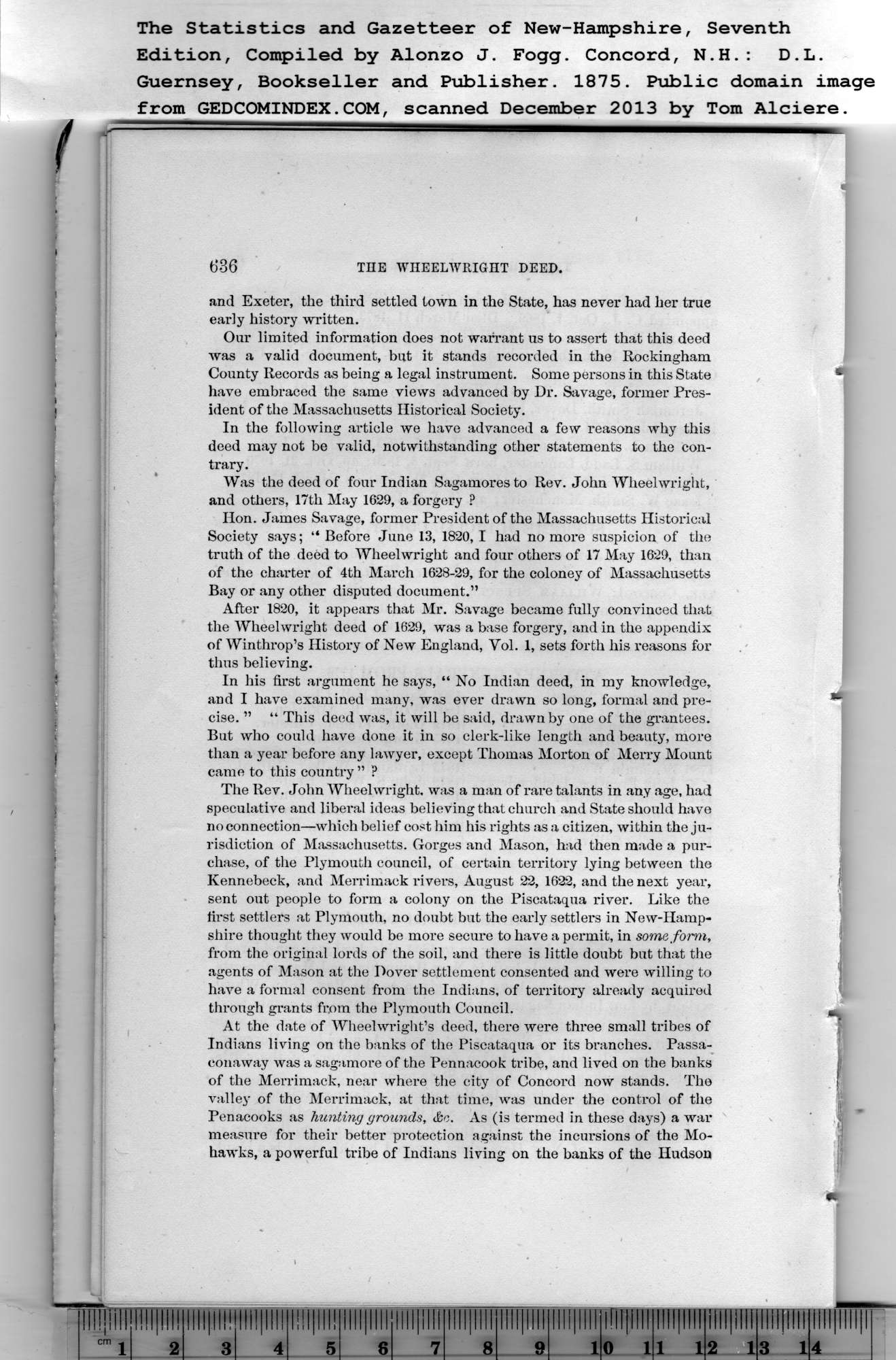|
636 THE WHEELWRIGHT DEED.
and Exeter, the third settled town in the State, has never had her true
early history written.
Our limited information does not warrant us to assert that this deed
was a valid document, but it stands recorded in the Rockingham
County Records as being a legal instrument. Some persons in this State
have embraced the same views advanced by Dr. Savage, former Pres-
ident of the Massachusetts Historical Society.
In the following article we have advanced a few reasons why this
deed may not be valid, notwithstanding other statements to the con-
trary.
Was the deed of four Indian Sagamores to Rev. John Wheelwright,
and others, 17th May 1629, a forgery P
Hon. James Savage, former President of the Massachusetts Historical
Society says; “ Before June 13, 1820, I had no more suspicion of the
truth of the deed to Wheelwright and four others of 17 May 1629, than
of the charter of 4th March 1628-29, for the coloney of Massachusetts
Bay or any other disputed document.”
After 1820, it appears that Mr. Savage became fully convinced that
the Wheelwright deed of 1629, was a base forgery, and in the appendix
of Winthrop’s History of New England, Vol. 1, sets forth his reasons for
thus believing.
In his first argument he says, “ No Indian deed, in my knowledge,
and I have examined many, was ever drawn so long, formal and pre-
cise. ” “ This deed was, it will be said, drawn by one of the grantees.
But who could have done it in so clerk-like length and beauty, more
than a year before any lawyer, except Thomas Morton of Merry Mount
came to this country ” ?
The Rev. John Wheelwright, was a man of rare talants in any age, had
speculative and liberal ideas believing that church and State should have
no connection—which belief cost him his rights as a citizen, within the ju-
risdiction of Massachusetts. Gorges and Mason, had then made a pur-
chase, of the Plymouth council, of certain territory lying between the
Kennebeek, and Merrimack rivers, August 22, 1622, and the next year,
sent out people to form a colony on the Piscataqua river. Like the
first settlers at Plymouth, no doubt but the early settlers in New-IIamp-
shire thought they would be more secure to have a permit, in some form,
from the original lords of the soil, and there is little doubt but that the
agents of Mason at the Dover settlement consented and were willing to
have a formal consent from the Indians, of territory already acquired
through grants from the Plymouth Council.
At the date of Wheelwright’s deed, there were three small tribes of
Indians living on the banks of the Piscataqua or its bi'anches. Passa-
eonaway was a sagamoi*e of the Pennacook tribe, and lived on the banks
of the Merrimack, near where the city of Concord now stands. The
valley of the Merrimack, at that time, was under the control of the
Penacooks as hunting grounds, &c. As (is termed in these days) a war
measure for their better protection against the incursions of the Mo-
hawks, a powerful tribe of Indians living on the banks of the Hudson
PREVIOUS PAGE ... NEXT PAGE
This page was written in HTML using a program written in Python 3.2
|
